Share
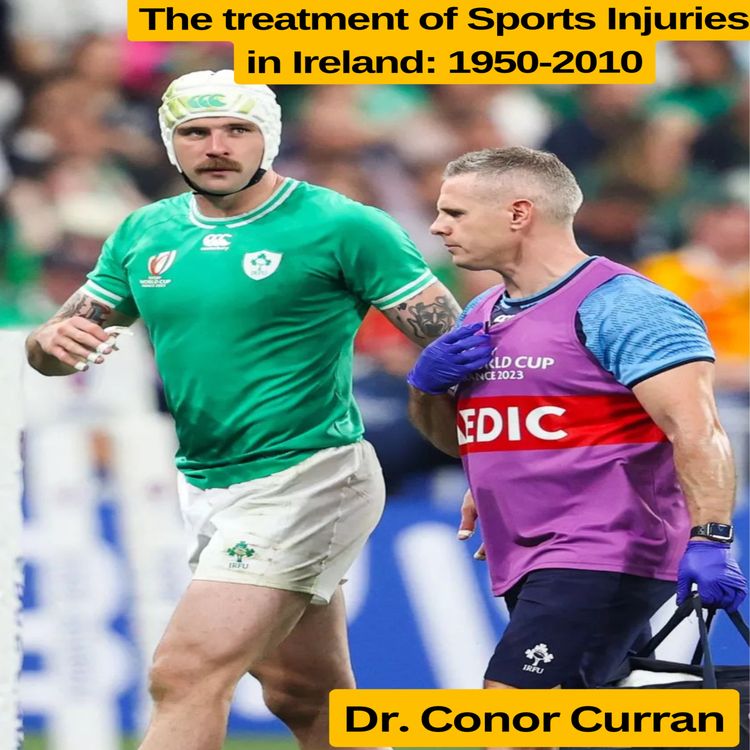
Sport in History
The treatment of sports injuries in the Republic of Ireland, 1950-2010: A History
This paper examines the provision of sports injury treatment in the Republic of Ireland during the period from 1950 until 2010. By the late 1960s, talks on the prevention and treatment of sports injuries were being held sporadically. How initial centres for the specialised treatment of sports injuries were developed in the 1970s is assessed. Sports related physiotherapy and professional treatment became more common by the early 1980s. In 1981, a government-backed investigation into sports injuries began, while the Irish Sports Medicine Association was also founded that year. With an increase in participation in sport, injuries had become more common. The main findings of the Sports Injuries Committee, completed in 1984, are identified and it will be shown that despite their recommendations, issues remained at grassroots level. It was not until 2005 that plans for a major specialised centre for the treatment of sports injuries in Dublin were announced.
Dr Conor Curran is an independent historian who has published extensively on the history of sport and society in Ireland. His new book, Blue Chippers from the Emerald Isle: A history of Irish footballers and scholarships in the USA in the twentieth century, will be published later this year by Peter Lang.
More episodes
View all episodes
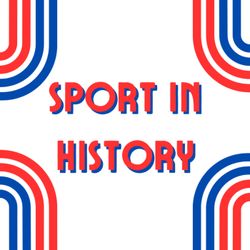
Emily Calcraft on Pacifism, Non-Violence and Sport in Inter-War Britain
37:24|Whilst scholars have tended to focus on hegemonic internationalist sporting practices and their promotion of peace, this paper explores peace activists’ use of sport as a means to create a community of anti-war individuals, on both the domestic and international levels. This study looks at two organisations to ascertain the role of physical activity in pacifism organisations: the League of Nations’ Union and the Peace Pledge Union. In doing so the paper outlines that, in the 1920s sport was used to foster international kinship as peace activists believed it to be an effective antidote to war and militarism. This largely rested upon large-scale internationalist and nationalist sporting events, most notably the Olympics. When international conflict and fascism was gaining ground across Europe, this belief was questioned. As pacifism became more absolute, physical activities were increasingly used to test an individual’s commitment to non-violence.Emily Calcraft is an AHRC White Rose College of Arts and Humanities funded PhD student at the University of Sheffield. Her research specialises in the use of education by the pacifist movement in Inter-war Britain.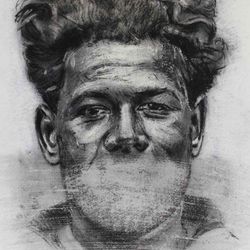
Colin Yates on Sport and "Art as a Message"
01:33:14|Join Max Portman as he interviews artist Colin Yates on sport and "art as a message", discussing how Colin's career and major projects have highlighted art as a message through the lens of football. Talking primarily about football for an aptly-timed 90 minutes (plus 3 minutes of injury time), Max and Colin cover a lot of ground, discussing how Colin's major projects on Black Footballers and women's football have driven home the three main themes that shape his work: Art, Sport and Education. They also discuss Colin's love for the underdog, how their creative processes work and at one point, the tables are turned when Colin begins to interview Max. This is for those not only with an interest in football or art, but also those with an interest in how creativity can shape the world and shape attitudes to educate and inform people. Note: The Artwork featured is 'Jack Leslie 'Silenced' ' by Colin Yates. For more of Colin's work, visit his website at : https://www.colinyatesart.com/For more information about the podcast, please visit: https://www.sportinhistory.org/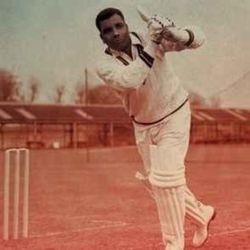
Peter Mason on Sir Clyde Walcott
52:15|Join Podcast host & editor Max Portman as he interviews Peter Mason, Journalist with the Guardian Newspaper & author of several books on music, food, carnival culture and sport, as they discuss Peter's latest book on the West Indian Cricketing Legend, Sir Clyde Walcott.In an engaging 50-minute conversation, Max and Peter cover a lot of ground, discussing Clyde's legacy not only as one of the greatest batsmen of all time; but also as the manager of the hugely successful West Indies team of the 1970s, 80s, and 1990s and his trailblazing achievements as an administrator, becoming the first non-white, non-British president of the International Cricket Council (ICC) in 1993. This is a must-listen for cricket lovers, but also those with a love of the Caribbean as Clyde Walcott was not only a legend of the Cricket field, where he modernised the game and made it truly international, but a legend of the Caribbean, where a boy from Barbados changed not only the West Indies forever as one of it's recognisable black icons of the modern age.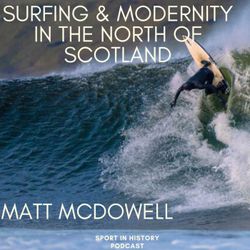
Matt McDowell on Surfing & Modernity in the North of Scotland
01:04:19|New podcast host and Editor Max Portman talks to Dr Matthew L McDowell about Dr McDowell's new book 'Surfing and modernity in the North of Scotland', published in September 2024 with Cambridge Scholars Publishing. The book discusses the existence and evolution of surfing in the region, from the 1960s to the present day. It does not, however, focus just on surfing: it also acts as a history of the region itself, and examines the possibilities and limits of surfing, sport, and activities like them being used as a means of reinventing communities.These are all themes that Max and Matt cover in their interview as they discuss the global and local cultures of surfing, the history of the Caithness and Sutherland Regions and how Ceefax (remember Ceefax?!) & the BBC weather report were useful tools in a surfer's arsenal. We also talk about the Sport, “islands”, people, and politics conference that Matt is organising on Scottish island of Orkney in June 2025. All in all, it's an hour's worth of insightful research on an under-developed part of Sports History.About Our guest: Dr Matthew L. McDowell is a Lecturer in Sport Policy, Management, and International Development at the University of Edinburgh, Moray House School of Education and Sport. He is the author of A Cultural History of Association Football in Scotland, 1865-1902 (2013), and an editor of The International Journal of the History of Sport. Previously, Matt was Chair of the British Society of Sports History (2017-19) and an editor of Northern Scotland (2020-23) and has a PhD in Scottish history from the University of Glasgow. His other publications examine a variety of phenomena in the history of Scottish, British Empire/Commonwealth, and Atlantic Rim sport, including: football, sporting events, lifestyle sport, curling, and sport’s relationship with politics. Matt is originally from New Jersey he has resided in Scotland for almost twenty years.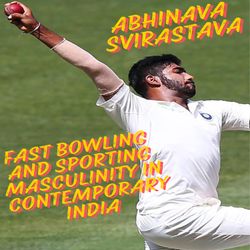
Abhinava Srivastava on Enacting ‘speed’ as Samman (honour): Fast bowling and sporting masculinity in Contemporary India
40:42|In this seminar paper, the enabling potential of ‘speed’ is theorized to study how bowling fast on cricket field has increasingly allowed a section of working-class and lower-middle class young Indian males to assert their claim over the metropolitan and cosmopolitan world of the game in contemporary India. The argument developed in this paper is how a bodily ideal and aspiration espoused by a group of working-class fast bowlers can be taken as a form of negotiation and upward mobility as against to an elite, upper-caste bodily ideology celebrated and enthusiastically embraced by batters. It begins by examining how the problem of not having enough fast bowlers shaped the colonial and postcolonial imagination on a discursive level. The chapter then attends the possibilities inaugurated by the raftaar (speed) for a group of interlocutors to theorize their bodily-world and the various alternative meanings they deploy to challenge dominant, upper caste masculinity and claim national and international stage of the game. Abhinava Srivastava is a fifth-year PhD scholar in the department of sociology at Shiv Nadar University, Greater Noida, India. His research project is centred on locating postcolonial subjectivities through an ethnographic encounter with India’s rapidly changing ‘Cricket Culture’. His thesis explores meanings, values, and claims that are produced through the appropriation of the game at various demographic level that range from the international to local. Such an exploration offers a promising account of the distinct cosmopolitan sensibility, idiom and expectation around Cricket Culture that goes into the making of new postcolonial culture and social identity in India.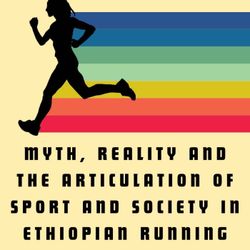
Michael Crawley on Myth, Reality and the Articulation of Sport and Society in Ethiopian Running
40:05|Taking inspiration from Derek Birley's 'The Willow Wand,' this talk begins by exploring some of the myths surrounding Ethiopian running. Michael Crawley explores some of the insights gained through 15 months of ethnographic fieldwork with marathon runners in Ethiopia. In particular, he argues that Ethiopian runners understand 'energy' to be a limited resource, which makes training together, and the social relationships necessary to do this well, particularly important. Towards the end of the talk, he explores the articulation of change in sport and broader society in relation to Ethiopian running and endurance sport more broadly. Dr Michael Crawley is a social anthropologist and Assistant Professor at Durham University. His first book, 'Out of Thin Air: Running Wisdom and Magic from Above the Clouds in Ethiopia' won the American Anthropological Association's Margaret Mead Award in 2022. His current work is on endurance sport, self-tracking technologies and performance enhancement in cross-cultural comparison. His sophomore book 'To the Limit: The Meaning of Endurance from Mexico to the Himalayas' is due to be published with Bloomsbury Sport on the 12th of September 2024.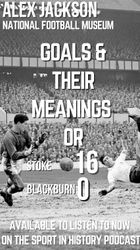
Alex Jackson on “Goals and their meaning”: The meaning of one wartime game. Or: Stoke 16 Blackburn Rovers 0
38:56|How can we understand the meaning of wartime football? This talk tries to tackle a small part of this question by exploring the history and contemporary reception of one wartime result. In doing so, it aims to illustrate some of the influences on Football’s Great War by writers like Tony Mason, Mike Huggins, and Adrian Gregory, and how they helped shape an approach to tackling this question.This talk reflects on how the result came about, how people reacted at the time, and how this was shaped by their understanding and experience of sacrifice during the First World War. In doing so, it will also explore how Edwardian ideas and concepts of amateurism and sportsmanship shaped, and in turn, were reshaped by wartime conditions.Dr Alexander Jackson has been a curator at the National Football Museum in Manchester since 2011. In 2014 he was the lead curator for the Greater Game: Football and the First World War. This inspired research that led to Football’s Great War: Association Football on the English Home Front, 1914-1918 (Pen & Sword). In 2023, he was one of 10 individual winners in the National Archive’s These Streets local history competition. He welcomes any interest in the NFM’s collections and helps support researchers wishing to use them.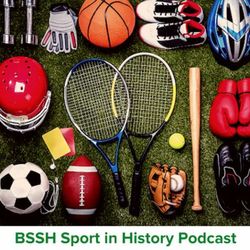
David Horspool at Chalke History Festival
14:29|Our Friends over at the History of Jackson have been kind enough to share this short podcast interview with David Horspool with the Sport in History Podcast, with Jackson Van Uden, founder of History with Jackson, interviewing David at Chalke History Festival about his book 'More Than a Game: A History of How Sport Made Britain' published in late 2023 by John Murray Publishing. 'More Than A Game' is available now to purchase in hardcover and paperback versions online and from all retail booksellers.